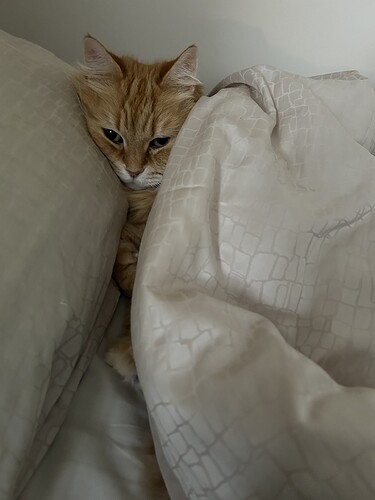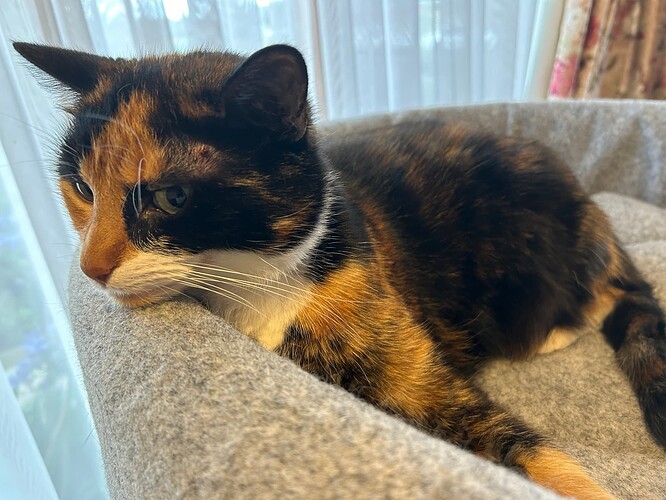In the spirit of the lovely Haruna’s super neat daily diary that she writes to give us reading practice, I decided I wanted to do a little writing practice in Japanese, and perhaps be a little more social while I’m at it. While this is more of a “when I feel like it” thing than a daily thing, I hope it will improve my writing skills over time! 
Of course, feel free to correct me when things don’t look right or seem very unnatural! I’m an amateur at best so… well, I’m sure you all understand.
This journal might be about my day or random thoughts I am having, I suppose we’ll see!  I guess I’ll start with a self introduction.
I guess I’ll start with a self introduction.
2024年1月9日 火曜日
こんにちは、私はスドです! 実際にスドは苗字じゃありません、古いコンピューター洒落があるのハンドルネームだけですよ。しかし、日本の苗字の音がありますから時々日本人はちょっと混乱になりますよね。 
今は大学で心理学を勉強していますけど、医学の医者になりたい。医大の入学を資格を有したいから、いつも大変勉強するね。めちゃくちゃ疲れたけど、私は事が出来るよ!私の大学の点は大丈夫でしょうけど、一番怖い事は医大入学試験。心理の試験ですから、勉強は簡単じゃなくて、所々無理だよ! 
まあ、私の猫について、三匹があります!全部大好きですから、もし写真を見てとても嬉しいです!
ルーシオです。Sometimes known as “Lucio the Ladykiller” for being ridiculously photogenic.
チャイカーです。Tchaika is the clear matriarch of this cat family. 猫パンチするのが上手!!
ストラービーです (Stravi)。ストラービーは二つ脳の細胞がある猫ですので、全部はとても懸命に働いていますよ!

日記を読んでいて、ありがとうございます!




 . This is how you improve, so keep at it!!
. This is how you improve, so keep at it!! . Hopefully that’s something you can do (practice medicine in Japan).
. Hopefully that’s something you can do (practice medicine in Japan).
